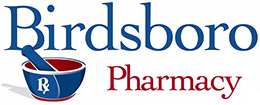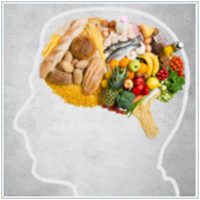When it comes to exercise, there will eventually be a time when you may injure yourself. Often, after an injury, you are advised to take plenty of rest or perhaps to adopt rehabilitation exercises. While this will be a huge help in your recovery, it’s crucial not to forget one vital part of getting better – eating healthy. Recovery experts believe that a healthy diet is a big help in a faster, and more complete recovery.
Recovering from exercise injury is not just about resting your muscles. You also need to take a look at your diet and incorporate nutritious foods that help hasten your recovery, so that you’ll be back in top shape in no time. Typically, there are three stages of injury recovery:
-
Inflammation – This is the body’s immediate response to injury. This happens because the damaged tissue is no longer being supplied with oxygen-rich blood, resulting in cell death. This usually lasts up until the fourth day after your injury, and is characterized by the presence of heat, swelling, redness, and pain at the injured site.
-
Proliferation – After inflammation, the damaged tissues are removed from the body and new blood supplies proliferate the injured site. Scar tissues also begin to develop, and this stage usually lasts up to 21 days post-injury.
-
Remodeling – The third stage is the longest one, since it can take up to two years after the initial injury. Scar tissue is replaced with stronger connective tissues, making the once injured area as strong as it was before, or even stronger.
The foods that you eat should depend on the stage of injury recovery that you are in. This way, you can speed up your healing process and at the same time still keep in shape, even when you are not engaging in the same intense exercises that you were doing before your injury.
Nutrition to manage inflammation
For the first stage of injury recovery, the goal is to support and manage the inflammatory process. Remember that inflammation is critical to the repair process, but too much can increase pain and damage tissues, so inflammation needs to be properly controlled.
-
Fats – You need a good balance of fats in your diet, since saturated, omega 6, and trans fats encourage inflammation you should avoid them. Omega 3, and monounsaturated fats, inhibit inflammation. You should increase your intake of mixed nuts, olive oil, flax oil, and avocados to control inflammation, and also add 3-9 grams of fish oil to your daily diet. Decrease your intake of vegetable oils like soybean oil and sunflower oil, since they are high in omega 6 fats.
-
Herbs and fruits – Herbs and fruits such as turmeric, garlic, curry powder, cocoa, pineapple, and berries all work toward managing inflammation in the first few days post-injury.
Diet to help tissue regeneration and long term healing
Because your body is healing, there is an extra demand from the body when it comes to the nutrients that you need. Your metabolic rate increases by up to 50% in the second and third stages of injury recovery, so you need a good, steady supply of nutrients and balanced goodness:
-
Protein – This macronutrient is an essential part of the healing process, since protein is an important component of connective tissues. A high protein diet is recommended for someone who is recovering from an injury. Examples of foods that are high in protein include fish, beef, chicken, milk, and eggs. You can also eat protein-rich snacks such as yogurt, cheese, nuts, beans, and quinoa.
-
Carbohydrates – There is really no exact recommendation of carbohydrate intake during injury recovery, although it is a well understood fact that glucose is needed in injury recovery. Whole grains like oats, beans, and yams are also a good source of dietary fibre and carbohydrate.
-
Vitamin A – This assists in collagen formation and fights against immune suppression after injury. You might want to take vitamin A supplements two to four weeks after injury. Yellow and orange vegetables are also rich in vitamin A.
-
Vitamin C – This is also an important component of collagen formation, so just like vitamin A, vitamin C supplementation two to four weeks after injury could help, unless you have been advised otherwise by a medical professional. Fruits are excellent sources of vitamin C.
-
Zinc – Zinc utilizes the fats and proteins in your body in order to promote healing. It also boosts your immune system, protecting you from viruses and infections. Examples of zinc-rich foods include chicken, oysters, seeds, and nuts.
Get in touch with us to find out how you can speed up your recovery process if you are suffering from an injury, or find out how to minimize the risk of injuries in the first place.

